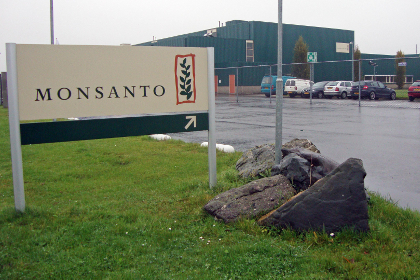
Genetically Modified Organisms (GMOs) and the Mentality of Propaganda Control
The evidence for genetically modified organism (GMOs) safety for human consumption and its environmental risks remains one of the nation’s most contentious, controversial and debated subjects. American mainstream media, which have now been fully absorbed into the agendas of large multinational corporate chemical and food sponsors, claim GMOs are completely harmless. Consequently, in the absence of critical journalism, aside from independent media, the spread of GMOs has become widespread.
October 19, 2016 | Source: Global Justice Ecology Project | by Richard Gale
The evidence for genetically modified organism (GMOs) safety for human consumption and its environmental risks remains one of the nation’s most contentious, controversial and debated subjects. Throughout the world, governments, national health ministries and their populations have been led to believe that there is no reason to critically object to GMOs. American mainstream media, which have now been fully absorbed into the agendas of large multinational corporate chemical and food sponsors, claim GMOs are completely harmless. We are sold a promise that they are urgently needed for feeding the world. Consequently, in the absence of critical journalism, aside from independent media, the spread of GMOs has become widespread.
Monsanto, Dupont, Syngenta, and Bayer dominate the global GMO market.
Corn is the US’ number one crop with eighty-nine percent being genetically modified. Ninety-three percent of American soybeans are GMO. GM sugar beets, certain squashes, canola, alfalfa, papaya (77% of Hawaii’s crop), and new apple strains are genetically engineered.
Many more GM vegetables and fruits are in the pipeline.
Only during the past 15 years have voices within the environmental and public health movements, and free-thinking scientists and researchers in molecular biology, genetics and agriculture turned vocal to publicly challenge GMO safety and their exaggerated promises. One especially unfounded promise, often promulgated by Monsanto and the US Department of Agriculture (USDA) is the GMO revolution’s ability to feed the world. Yet as a senior economic analyst at the Environmental Working Group in Washington DC has reported, “this is simply a myth adopted and deployed by US agribusiness to distract the public from reality.”
